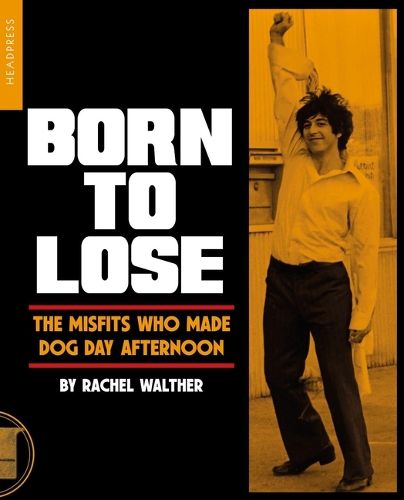Readings Newsletter
Become a Readings Member to make your shopping experience even easier.
Sign in or sign up for free!
You’re not far away from qualifying for FREE standard shipping within Australia
You’ve qualified for FREE standard shipping within Australia
The cart is loading…






August 22, 1972: Two men attempt to rob a bank in Brooklyn. They fail miserably: the money they'd hoped for isn't there, the cops get tipped off immediately, and within 30 minutes they're in a hostage situation with the FBI. Things really get crazy when reporters learn that one of the robbers is gay and married to a trans woman. The crowd of journalists and onlookers grows into the hundreds, desperate for a glimpse of this charismatic live-wire who's robbing the bank not for greed or thrills, but to fund his partner's sexual reassignment surgery.
Sound familiar? This is the plot of Dog Day Afternoon, the 1975 film directed by Sidney Lumet and starring Al Pacino, John Cazale, and Chris Sarandon. It remains a high-water mark of New Hollywood, where the best acting talent of the day came together on a film that was truly exceptional. But equally exceptional was the fact that the film was based on a true-life incident.
Drawing on extensive archival research, film historian Rachel Walther delves into the film's backstory, tracing how an unbelievable true crime tale of love, bank robbery, and LGBTQI+ activism became a box-office smash and catapulted a group of Brooklyn outsiders into the media spotlight. Name-checked on TV shows from The Simpsons to Drunk History, and now a Broadway play, Dog Day Afternoon's legacy continues to inspire filmmakers, writers, and actors. Walther's deep dive interrogates the film's place in the 1970s zeitgeist, set against a background of antiwar activism and the fight for gay and trans rights, and in doing so shows its continuing relevance today.
$9.00 standard shipping within Australia
FREE standard shipping within Australia for orders over $100.00
Express & International shipping calculated at checkout
Stock availability can be subject to change without notice. We recommend calling the shop or contacting our online team to check availability of low stock items. Please see our Shopping Online page for more details.
August 22, 1972: Two men attempt to rob a bank in Brooklyn. They fail miserably: the money they'd hoped for isn't there, the cops get tipped off immediately, and within 30 minutes they're in a hostage situation with the FBI. Things really get crazy when reporters learn that one of the robbers is gay and married to a trans woman. The crowd of journalists and onlookers grows into the hundreds, desperate for a glimpse of this charismatic live-wire who's robbing the bank not for greed or thrills, but to fund his partner's sexual reassignment surgery.
Sound familiar? This is the plot of Dog Day Afternoon, the 1975 film directed by Sidney Lumet and starring Al Pacino, John Cazale, and Chris Sarandon. It remains a high-water mark of New Hollywood, where the best acting talent of the day came together on a film that was truly exceptional. But equally exceptional was the fact that the film was based on a true-life incident.
Drawing on extensive archival research, film historian Rachel Walther delves into the film's backstory, tracing how an unbelievable true crime tale of love, bank robbery, and LGBTQI+ activism became a box-office smash and catapulted a group of Brooklyn outsiders into the media spotlight. Name-checked on TV shows from The Simpsons to Drunk History, and now a Broadway play, Dog Day Afternoon's legacy continues to inspire filmmakers, writers, and actors. Walther's deep dive interrogates the film's place in the 1970s zeitgeist, set against a background of antiwar activism and the fight for gay and trans rights, and in doing so shows its continuing relevance today.